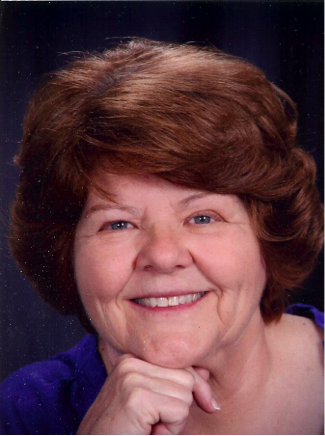An Ashbrook Teacher for the Community
December 24, 2020
Most of those enrolled in Ashbrook’s Teaching American History graduate program teach social studies in secondary schools. Others pursuing the degree have found creative ways to promote civic education outside of the classroom.
Before her retirement, Janice Breitenstine, a public school music teacher in Fort Worth, Texas, had noticed a disturbing trend. “Students had little concept of the American history behind the songs I was teaching. I taught the ‘Star-Spangled Banner’ to 5th and 6th graders, and if I asked them why the song was written, they could not say. Not only did they not know Americans had fought the British in the War of 1812, they didn’t know we had won our independence from Great Britain.”

Older students seemed equally clueless: “When I taught songs about Thanksgiving, students could not say why we celebrate it. Elementary students would say, ‘So we can eat turkey;’ high school students, ‘So we can watch football,’” Breitenstine lamented.
Noticing that her friends also share her worry that Americans are losing their historical memory, Breitenstine conceived an idea: a Saturday luncheon group where women could gather to rediscover the history we celebrate on national holidays. She began with a Thanksgiving luncheon. “I asked people going through the buffet line to think about their childhood memories of Thanksgiving, and then to talk about these at their tables. They spoke of dressing up as pilgrims and of family dinners at which Grandpa prayed over the meal before everyone ate. After the meal, I spoke about the history — how the Mayflower Compact was an early instance of government by consent.”
She gave another luncheon for Presidents Day, and soon she’d built a group of about 40 regular attendees. Searching the internet for historical resources, she found Ashbrook’s online library of primary documents: TeachingAmericanHistory.org. That led her to Ashbrook’s graduate program for teachers. Breitenstine, who makes frequent visits to Ohio to visit her mother, decided to enroll. Since 2012 she has attended the summer residence program and taken online courses during the school year.
“I love every minute of it,” Breitenstine said. “I enjoy digging into primary documents, something I never did in high school history.” Breitenstine’s luncheon group has read the Constitution, the Bill of Rights, and the Declaration of Independence. She even encourages her friends to read the Declaration at their own Independence Day celebrations.
She finds the Ashbrook faculty “very strong and approachable; they give us their email addresses, encouraging us to contact them even after the course to ask questions. They treat us like colleagues, asking to be called by their first names.”
“The graduate program certainly helps me stay more than ‘a chapter ahead’ of my luncheon group.” Some of Breitenstine’s friends bring up historical facts from their own reading; others rely on her for information. She uses history quizzes to probe myths about America. “About Washington, most knew he set a precedent by accepting only two terms as president, but did not know that an early biographer invented the story of him chopping down a cherry tree.” Breitenstine shared factual stories with her friends illustrating Washington’s honorable nature, “the point of the myth.”
Breitenstine’s generation was taught a respect for America that is less often conveyed to current students, who may know Washington only as “an old white man who wore a wig and owned slaves.” This makes them less open to learning the facts, but Breitenstine believes retired people have a role in reviving respect for our American heritage. Many retirees help take care of their grandchildren. “It may be your role to balance what your grandchildren are being taught in the classroom,” Breitenstine tells her friends. This will help the next generation become “well-informed voters who understand the background of current issues.” Our form of government can only survive if the electorate is educated in the principles of constitutional self-government. The graduate program is helping Janice and others like her to revitalize that essential civic education in the spheres in which they have influence.

